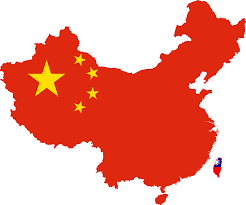Stock prices in China climbed on Monday as investors responded positively to signals from the government about plans to tackle the economy’s weaknesses. These signals include borrowing more and easing regulations on the private sector. The CSI 300, which tracks large companies in Shanghai and Shenzhen, saw a 1.9 percent rise. This uptick in stock prices occurred despite a discouraging economic report the previous day. On Sunday, the National Bureau of Statistics revealed that prices charged by factories and other producers dropped by 2.8 percent in September compared to the same time last year. Wholesale prices have been falling for two consecutive years.
On Saturday, Finance Minister Lan Fo’an announced that the government would increase borrowing to provide funds to cash-strapped local governments, stabilise the real estate market, and inject more capital into state-owned banks. This was one of several actions in recent weeks aimed at showing that officials were aware of the challenges facing the economy and the private sector. However, Lan did not specify how much additional borrowing or spending would be directed towards boosting domestic consumption, shoring up the real estate sector, and strengthening financial institutions.
At a news briefing on Monday, Luo Wen, the head of the State Administration for Market Regulation, assured that the government would not impose unreasonable fines on businesses or take other measures that have been criticised by entrepreneurs as stifling growth. Luo also sought to counter the perception that the government favours state-owned enterprises, stating that the private economy would be treated and protected equally, and a supportive environment would be created for its growth.
Over the past few years, consumer confidence in China has taken a hit, particularly in the wake of the Covid-19 pandemic, with housing sales declining over the past two years. In response, on September 24, the country’s central bank and other financial regulators announced various initiatives to encourage bank lending, including the lowering of interest rates. Two days later, the Communist Party Politburo called for immediate actions to stabilise the economy. Since these measures were introduced, the CSI 300 index has risen by more than 20 percent.
While the Communist Party holds absolute power in China, any significant increase in government spending beyond the pre-approved budget requires approval from the standing committee of the national legislature. This committee is not scheduled to meet until later this month.

